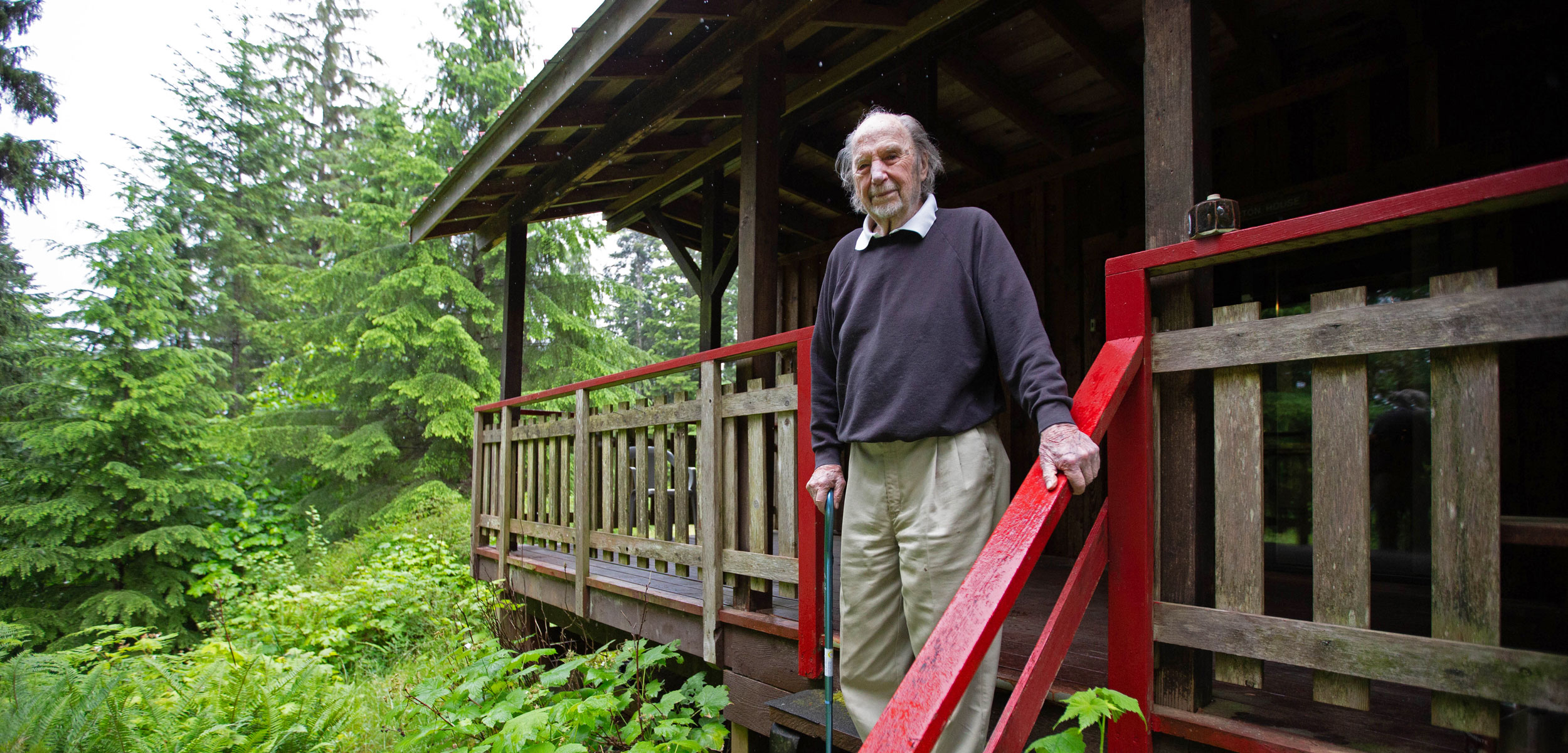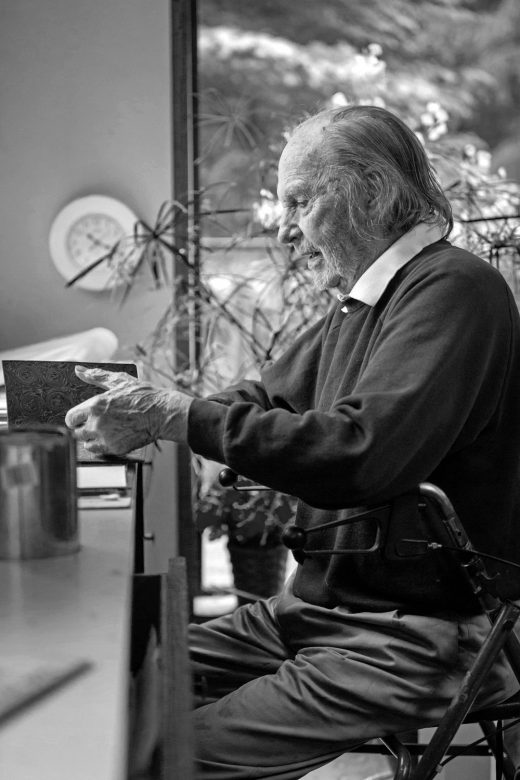
Father Charles Brand on the steps of his hermitage overlooking the Oyster River on Vancouver Island, British Columbia. Photo by Grant Callegari for Hakai Magazine
During my ministry at Bridge St. United Church an affable journalism student named James Wood attended worship. He did an exceptional photo-journalism piece on our meal ministries. When he graduated he found work in Alberta and has since moved on to Vancouver Island and the Campbell River area.
We've stayed in touch and I mentioned that Father Charles Brandt, the first Roman Catholic priest in Canada to be ordained a hermit during the 20th century, lives on the nearby Oyster River. I visited Father Brandt nearly 25 years ago after seeing an episode of the venerable CBC Man Alive series which featured him. Father Brandt was an environmental activist, a contemplative, a fly fisherman, and a restorer of precious books.

Brandt, 95, continues to breathe new life into old books in his bookbinding laboratory at his hermitage. Photo by Grant Callegari for Hakai Magazine
His story fascinated me so I contacted him before a church committee trip to Vancouver Island and arranged a visit which had a lasting impact. He had a small chapel within his hermitage home but the road in has often been a "prayer walk" for members of nearby parishes while the river itself is a flowing, singing place of contemplative worship.
Well, James found Father Brandt, who is now 96 and still living in his rugged little hermitage pn 27 acres overlooking the river. James discovered that Brandt is planning to hand over his land to the Comox Valley Regional District (CVRD) when he dies, which will be a wonderful legacy. Here is an excerpt from James' article:
[Brandt] believed that preserving the land would be one small way to give back the “dignity of the earth”.
“We’ve stripped off all the timber, all the
way, miles up the Oyster River, and we’ve polluted our rivers,
atmosphere, so I have to give back the dignity to the earth,” said
Brandt.
“It’s not just people, but it’s the earth. I
would say, the human community and the natural world has to go into the
future as a single sacred community. Not two communities, but a single
sacred community. The human community and the
natural world, we have to work together as a unit, not separately.”
Thanks, James, for honouring someone I consider an unsung "saint" in the tradition of Thomas Merton and the early Celtic hermits who lived in the wild places.

No comments:
Post a Comment